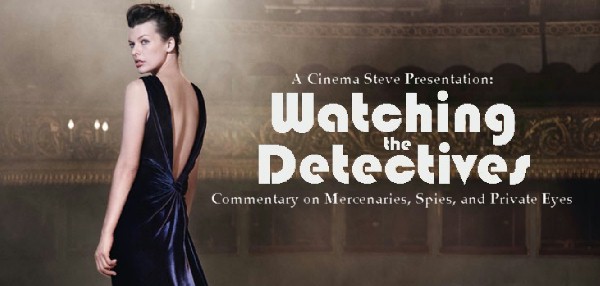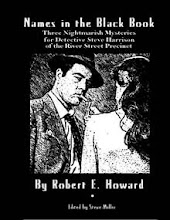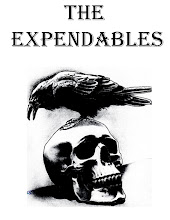Starring: John Phillip Law, Marissa Mell, Michel Piccoli, and Aldolfo Celi
Director: Mario Bava
Rating: Seven of Ten Stars
In "Danger: Diabolik", the long-standing rivalry between the mysterious supertheif Diabolik (Law) and police inspector Ginko (Piccoli) becomes personal when Ginko forces a top gangster (Celi) to take action against his foe and the love of Diabolik's life, Eva (Mell) is caught in the middle.
I read maybe a couple dozen of the "Diabolik" comics when I was a kid, and two I have the fondest memories of is the one where Diabolik and Ginko team up to rescue their wives from a crook who has kidnapped them, and another where they are both on a cruise ship that gets taken over by terrorists, forcing a sort-of team-up between the two.
As portrayed in "Danger: Diabolik", such cooperation would never have taken place--the two men appear to dislike each other entiely too much, even if the respect they have for one another in the comic books still seems to be present to some degree--but aside from this small "failing", I think this film mostly conveys the essense of its source material better than most other comic book movies out there. It's not quite as dark as I remember "Diabolik" being, but it's entertaining enough.
Star John Phillip Law and the costume designers even took pains to match the physical appearance of Diabolik from the comics. There is no arbitrary "re-imagining" for its own sake in this film, as everyone seemed comfortable with and knowledgeable of the source material ot the point where they could do a faithful adaptation. (Even the musical score captures the simultaneous playfulness and grim intensity that were the hallmarks of the "Diabolik" comic.
There's further icing on this cake, as there literally isn't a single scene in this film that isn't staged in a visually arresting fashion. Director/cinematographer Mario Bava manage to fully bring a comic-book feel to the screen, presenting the sort of motion and three-dimensionality that the illustrators of the "Diabolik" comic are attempting to achieve with the many chase scenes and close calls the characters execute in those pages.
Bava also manages to bring a comic book feel in subtle and visually creative ways. Many scenes have the sense of being panels in motion, with action being framed in various ways, sometimes even feeling like "inset panels", like where Diabolik and Eva are staking out a break-in target, and we see their faces in the review mirror, framed before the building they are watching. The most impressive of the many instances of this in the film is a conference of gangsters that is viewed through a lattice, with characters positioned around the room and isolated in their own frames while speaking.
While the creative cinemagrapy is a joy to behold, some of the sets and mat-paintings are equally impressive. Diabolik's secret hideout, with its many security precautionsand gadgets is the sort of thing James Bond's nemisis Blofeld wishes he could have. Lex Luthor probably has lair-envy as well. (Although neither Blofeld nor Luthor would know what do to with Diabolik's huge rotating bed where he and Eva have wild sex while coverd in millions of dollars....)[/left]
As much as I admire the visuals and the sets, I think these also end up being counted among its weaknesses, despite their beauty (or perhaps becaome of it). Director Bava also seems to have been aware that he and his crew had made a very special movie here, and he is just a little too proud of their work and he shows off the sets and the matpaintings just a little too much. On more than one occassion, he spends so much time dwelling on them that the movie starts to sputter and stall--the worst of these is the scene of Diabolik and Eva making love, while visually cool, goes on for so long that it becomes downright boring. It always recovers thanks to even more great visuals and a script that is jam-packed with action, but the film could have been so much better if some of the scenes have been trimmed a bit.
Speaking of the script, this film would also have been alot better if its creators had known when to quit. There is a perfect ending for the filmd, and even a suitable denoument, but it continues well beyond that point and even gets a bit repetitious.
I'm certain the intent was to include a truly impossible crime in the film--to push it completely over the top--but the end result is a feeling that two different major heists and two different endings had been contemplated for the script (each with its own impossible escape for Diabolik) and in the end it was decided to use both of them. The result is that viewers will start feeling a little impatient during the film's final 10-15 minutes, but because we've already sat through something that's thematically identical and that brought the story to a satisfying close.
"Danger: Diabolik" is an mostly well-done, light-hearted action flick, and it's definately underrated and under-appreciated. I recommend you purchase or rent this flick. If it didn't keep going past the point where it should have ended, and if it had been a little more like the actual comics, it would have been perfect.























